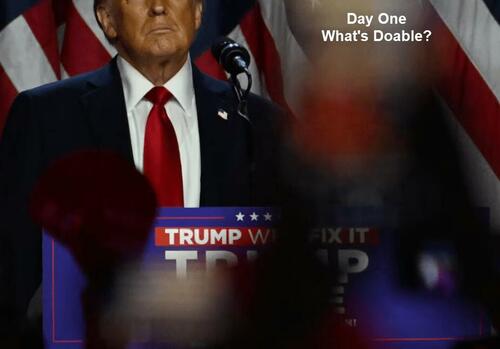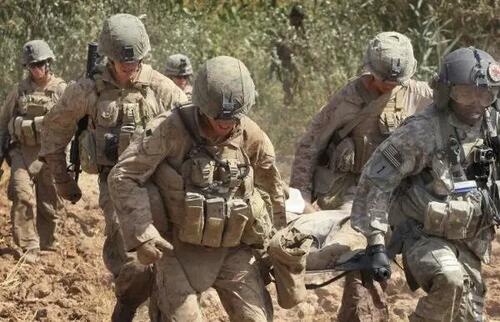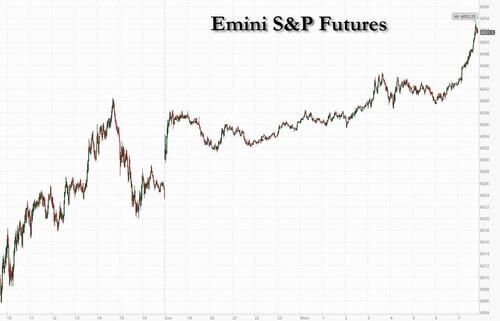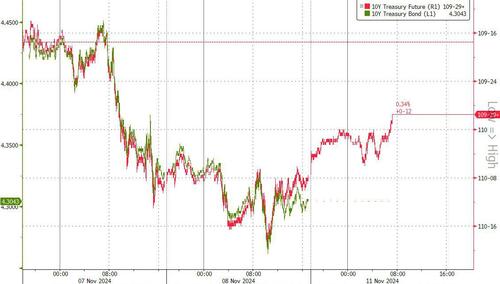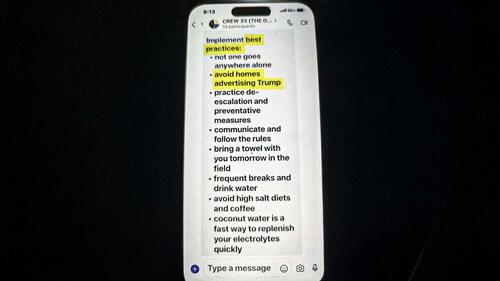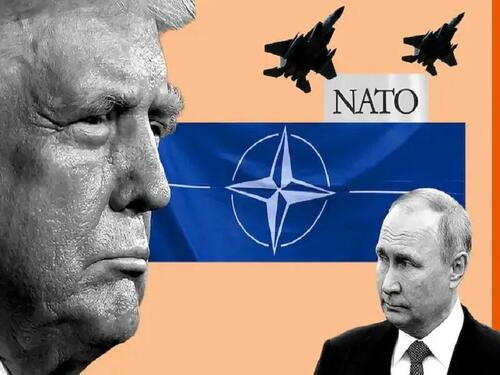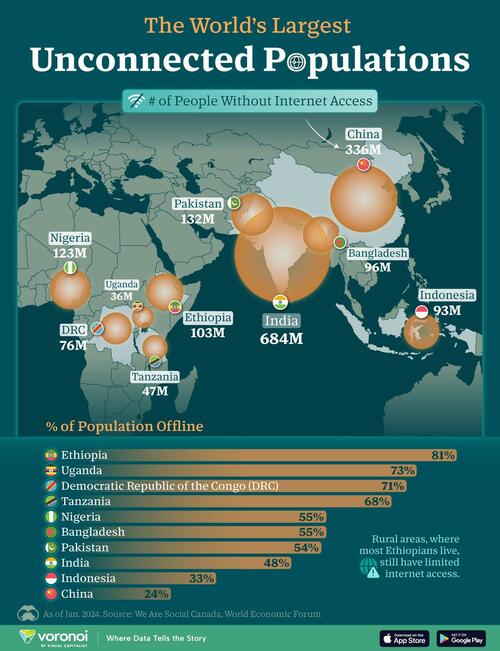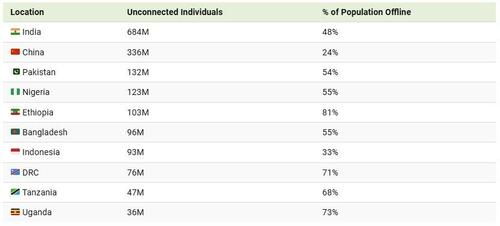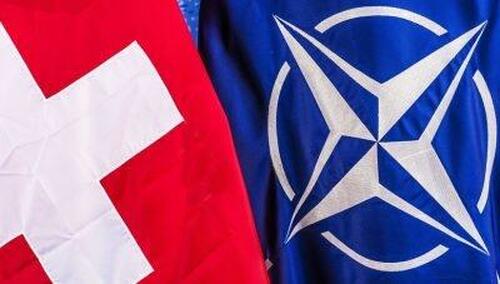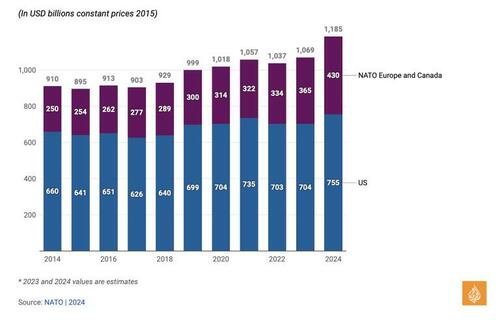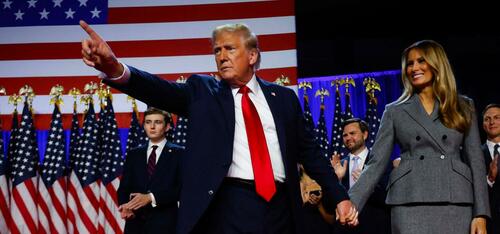On Day One, Five Things Trump Will Do With Executive Orders
Authored by Mike Shedlock via MishTalk.com,
Executive order drafts are being prepared. Here’s five things to discuss.
Five Things
-
Immigration: Trump has said he would reimplement on day one his “Remain in Mexico” policy, which requires asylum seekers to stay in Mexico until their cases are processed by U.S. immigration courts.
-
The Wall: He has also said he would resume construction of the wall along the U.S.-Mexico border—something he repeatedly criticized the Biden administration for failing to continue.
-
Pardons: Fire Jack Smith and pardon Jan. 6 offenders. Trump has called the people facing charges hostages and political prisoners.
-
Climate: Trump has said that he will sign an executive order once again withdrawing the U.S. from the Paris Climate Agreement, the international treaty which implements the objectives of the United Nations Framework Convention on Climate Change. President Biden on his first day in office had brought the U.S. back into the Obama-era accord after Trump had pulled out of it in 2019. Officials close to Trump said the order has been drafted and will be ready for Trump to sign on his first day in office.
-
Transgender Student Protections: In April, the Biden administration unveiled a final set of changes to Title IX to cover discrimination based on sexual orientation and gender identity for the first time. Trump has vowed to revoke such protections for transgender students the day he takes office.
The above list is from the Wall Street Journal article What Trump Can—and Can’t—Do on Day One.
I agree with most of those, at least partially.
1: I am fine with remain in Mexico but we do need faster decisions on an outcome.
2: If the wall was funded, then it can continue. If not, Trump can’t do that on day one.
3: I strongly disagree with blanket pardons, but I am OK with pardons for anyone who was totally peaceful (no destruction of property or violent actions). My guess is Trump will go way overboard.
4: Go for it. End the nonsense.
5: No new protections were ever needed in the first place. Adding them made a huge mess of things with absurd state actions and interpretations.
Here are some other ideas from the article
Mass Deportations
Trump has vowed to implement “the largest deportation program in American history” as soon as he takes office. Although such a massive logistical feat would likely take longer to carry out, officials familiar with his planning said it is likely he will sign a pre-drafted executive order when he takes office ordering the Department of Homeland Security and other agencies to deport undocumented migrants.
Mass deportations would be a huge mistake, especially for those here for over two years and is working, those with citizen spouses, and those with citizen children.
But please deport the criminals. Start there, then intelligently think about how to proceed.
Otherwise, many states will not go along.
Ending Birthright Citizenship
Trump has also said he would use executive action on his first day in office to put a stop to granting birthright citizenship to children born to anyone who entered the U.S. illegally. This is likely to face legal challenges.
We can debate the merits of the idea, but there would be a court challenge and Trump would lose.
The Constitution says “All persons born or naturalized in the United States, and subject to the jurisdiction thereof, are citizens of the United States and of the State wherein they reside.”
That seems clear to me. The phrase “subject to the jurisdiction thereof” refers the children of foreign diplomats and invading foreign enemies.
Vox has an Excellent Discussion of Birthright Citizenship.
Trump would be wise to not step into this mess.
Ukraine and Israel
Trump has vowed to take several measures aimed at putting what he sees as America’s interests first and has vowed to end conflicts around the world, including in Ukraine and the Middle East, before he takes office. Among them, he has said he would give priority to American national security and economic interests at home over paying billions to support allies abroad, and would impose steep tariffs on imports to stimulate domestic job creation.
Trump may have luck encouraging Ukraine, which has been losing ground, to the negotiating table, but Russia’s Vladimir Putin—as well as Hamas and Israel—have shown no signs they want to end the fighting in their respective conflicts.
Ukraine and Israel are not day one issues that can be addressed by executive order.
Trump has also said that he would demand the resignation of any general involved in the U.S. withdrawal from Afghanistan by “noon on Inauguration Day.”
Demanding resignation is doable, but Firing is Complicated, says Lawfire.
The New Home for Hispanics is the Republican Party
The most disturbing day one action would be blanket deportations. I strongly disagree. But that won’t be day one regardless.
I discussed blanket deportations and the Dignity Act in The New Home for Hispanics is the Republican Party
Please click on the link and play the interview with Republican Florida rep. Maria Salazar.
I endorse the bipartisan Dignity Act she sponsored. It is exceptionally balanced and well thought out. But it’s not what Trump promised.
Tyler Durden
Mon, 11/11/2024 – 09:45
via ZeroHedge News https://ift.tt/6cAIMJ9 Tyler Durden
